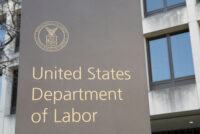Category: HR Management & Compliance
There are dozens of details to take care of in the day-to-day operation of your department and your company. We give you case studies, news updates, best practices and training tips that keep your organization fully in compliance with ever-changing employment law, and you fully aware of emerging HR trends.
There’s a growing tendency for workers to request mobility in the labor market. Coupled with this is a growing tendency for businesses to classify workers as independent contractors instead of employees. This phenomenon has been dubbed a “gig” economy. Recently, Uber agreed to pay $100 million to the state of New Jersey to settle a […]
Words matter, and they matter a lot. Or as someone remarked (and I’m paraphrasing), “The difference between the right word and the almost right word is the difference between a lightning bolt and a lightning bug.” Here’s a case from Houston that reminds us about this lesson.
The National Labor Relations Board (NLRB) has extended the comment period on its proposed rule that aims to make more employers susceptible to joint employment status. The original comment period was to go through November 7, but the NLRB announced on October 14 that it will accept comments through December 7. Comments replying to the […]
While “quiet quitting” may mean different things, the phenomenon is generally understood to refer to employees who feel disengaged at work and no longer believe they are a meaningful part of the company or its mission. Those who quiet quit report they have made a decision not to go “above and beyond” at work and […]
On August 29, 2022, the National Labor Relations Board (NLRB) issued a major decision that reversed a standard it set in 2019. Previously, employers enjoyed substantial discretion to limit alterations to work uniforms or other designated clothing in the workplace.
As the U.S. Department of Labor (DOL) prepares to publish a new proposed rule on how individuals can be classified, employers are being warned to expect a tougher time justifying an independent contractor classification. The DOL will publish a Notice of Proposed Rulemaking on October 13 aimed at clarifying how workers can be classified under […]
In our latest installment of Ask the Expert, brought to you by the team of industry experts at HR Hero®, we look at a recent question from a subscriber regarding the WARN Act and the required notifications that must be provided ahead of a temporary layoff. Q: We are a privately owned company, based in Missouri, with […]
The rights of transgender persons have become a hot button issue not only in schools and sports but in the workplace as well. Recently, the U.S. 4th Circuit Court of Appeals (whose rulings apply to employers in Virginia, Maryland, North Carolina, South Carolina, and West Virginia) weighed in on whether a transgender woman, who suffered […]
Title VII of the Civil Rights Act of 1964 forbids discrimination based on certain protected categories (e.g., gender) in any aspect of employment. Discrimination can present itself in the form of “hostile work environment,” “disparate treatment,” or the “disparate impact” of a particular employment practice. Disparate treatment cases involve claims in which an employee alleges […]
During July 2022, the Equal Employment Opportunity Commission (EEOC) updated its COVID-19 workplace guidance. The new standards set forth important updates and clarifications regarding COVID-19 testing, vaccine mandates, and disability and religious accommodations in the workplace. Employers should familiarize themselves with the new guidance and, if necessary, update their existing COVID-19 policies.










